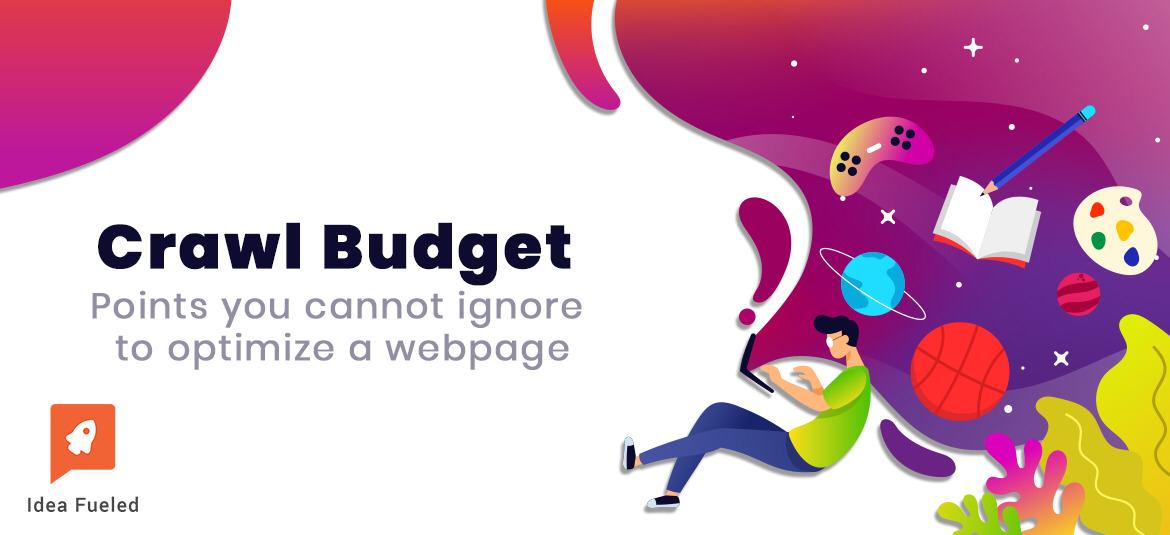If you have been working around a website or a blog for some time you’d know how does a webpage shows up on Google Search results. SEO is not just about optimizing content for the right keywords, but adding the right elements for your webpage to rank higher. Talking of ‘crawling’, it’s imperative that you are well aware of the importance of the Crawl budget and how to use it in an optimum way for your webpage.
Is Crawling important for your webpage?
Yes. SEO is all about how users get to find your page through Search results. Google sends its bots (computer programs that collect data from around the web to build an index for Google Search Engine) to crawl your webpage and index words and content used within. After crawling is complete, the indexed pages are put into Google’s index, making it easy to find through Search results. To make it short, Google won’t show your page for a Search result, if it has not been indexed, so there’s no ranking for your webpage.
What is a Crawl Budget?
A Crawl budget refers to the number of pages Googlebot crawls and marks on a website within a given time frame. For example, Googlebot hits a webpage about 500 times a month, you can say that the monthly crawl budget is 500 for Google. So logically, higher is your crawl budget, better are your chances of getting discovered by the viewers.
What determines Crawl Budget?
If norms of SEO are to be believed, it’s not quite clear as to how a crawl budget is assigned. However, according to Google, its Search Engine takes into account two factors to determine crawl budget.
– Popularity: Most popular pages get crawled more often.
– Staleness: The fresher content you add to a webpage, Google attempts to crawl it more frequently.
How can you optimize your Crawl Budget?
To make your page rank higher on Search results it’s important that you add fresher content to your website quite frequently. However, there are other points you need to take into consideration.
Website maintenance
There are two possible return codes- 200 (for OK) and 301 (for GO HERE). The first thing you need to consider to increase your crawl budget is making sure that these ONLY these two codes are used. Any other return code is not OK. Analyse your server logs, try to find errors, and fix them. Fixing an error might can include fixing a code or redirecting a URL elsewhere. If the source of error is known, you can try to fix the source too.
Block sections of website
If you haven’t been updating your website often, there’s a high chance that your website would have pages that don’t really need to be in Google. Repetitive meta descriptions are usually seen in e-commerce websites, where they have a million ways to filter a product. Every filter adds a new URL for Google. You may use different extensions to block webpages for Google like robots.txt.
Reduce redirections
Adding 301 to a webpage, redirects the URL to a different page. Google notices that a new URL has been formed on your website and marks it as to-do task, doesn’t necessarily follow the new URL immediately. Consequence- such pages take longer to crawl, contributing in a decrease in Crawl budget.
Switch to AMP
Accelerated Mobile Pages or (AMP) are lighter versions of webpages brought into existence when mobile web was getting popular. If you have a website with low number of webpages and redirections, it’s advised that you switch to AMP. The negative side of using AMP is that you need to add a separate URL for every page on your website. So, technically you end up increasing the crawl budget extensively, which again is a big no-no. AMP should be used for websites with lesser number of webpages or to increase a website’s speed.
URL parameters
Well-known Content Management systems generate a number of dynamic URLs that end up leading to the same page. Search Engine bots treat these URLs as separate pages and your website can be marked for content duplication, let alone wasting your crawl budget. So, if your website uses a CMS that adds parameters to URLs, you may want to inform the same to Googlebots using a Google Search Console account, under URL Parameters.
Http errors
No matter which URL Google fetches, it automatically consumes one unit of your crawl budget. SO test your site for any broken links or server errors and fix them immediately.
Optimizing your Crawl Budget does not just improve your SEO and site rankings on Google, but also ends up optimizing your website speed, improving its navigation and reducing duplication of pages. All of it eventually leading to making users happy and making your website click-worthy. And that’s why Crawl Budget optimization is important for SEO.
